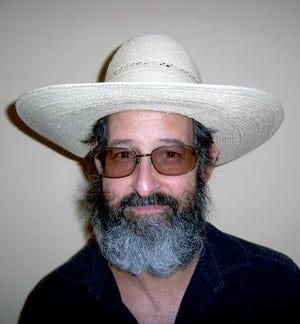Opinion: Politicians should stop attacking the PRC

During the Nov. 7 interim legislative meeting of the Water and Natural Resources Committee some committee members castigated the N.M. Public Regulation Commission (PRC) simply for doing their job.
I was appalled to see Representative and Speaker of the House, Brian Egolf, join Governor Grisham and Senator Jacob Candelaria in their ongoing abusive rhetoric toward the PRC.
The Public Regulation Commission has admirably been trying to navigate the very complex problem of how to implement an extremely flawed law, the Energy Transition Act (ETA). Though the ETA commendably moves N.M. toward a future powered by renewable energy, the following examples outline ETA provisions which trample upon the U.S. and N.M. constitutions:
The ETA abolishes due process of law in reviewing many utility investments; it failed to list all important policy aspects in its long-title (intended to alert legislators and the public of its contents); it combines multiple subjects (in order to pass provisions that would not pass on their own merits); it failed to set out all revisions to existing laws in full (another mandate to ensure transparency of policy changes); it contains provisions which effectively strip the PRC of its ability to perform its function (regulation of utilities requires the balancing of interests to set just and reasonable rates); it taxes one constituency (PNM ratepayers) to give services to another (schools in San Juan County); and, it grants special favors to specific entities (most notably PNM).
After trampling upon both the U.S. and N.M. constitutions, the very same legislators are blaming the PRC and calling for PRC reform. Among other things they are calling for increasing educational requirements and they are poised to propose a constitutional amendment to the voters (in the Nov 2020 election) that we give up our ability to elect PRC commissioners; instead, the same politicians that just undermined PRC ability to regulate want to appoint commissioners.
Education is a good thing; however, the Legislature should look at reforming itself in this regard; it should make sure that legislators and the governor understand and uphold the U.S. and N.M. constitutions.
Voters should be very leery of upcoming legislative efforts to “reform” the PRC. We should make sure that the N.M. legislature and Governor Grisham understand that PRC ability to regulate utilities means that the PRC must be able to weigh evidence, balance interests of monopolies and ratepayers, and set just and reasonable rates. Voters should make it clear that we do not want the legislature to undermine our democratic ability to elect PRC Commissioners.
If the legislature wants to reform the PRC it should do it by giving the PRC the resources it needs to hire additional staff experts so that it would be better equipped to evaluate utility company filings.
During speaker Egolf’s rant in the above-mentioned committee meeting, he asked, under what authority would the Commission determine whether or not the ETA is constitutional? As a quasi-judicial entity, the PRC regularly navigates and balances complex legal mandates.
The unconstitutional provisions in the ETA are so blatant that determination of one aspect of their unconstitutionality is simply a clerical task: check if the old laws, as amended, have been set out in full; if they have not, then the changes are unconstitutional and rightfully should be disregarded by the PRC.
Speaker Egolf, the authority on this is the Supreme Court of the United Stated of America: “An unconstitutional act is not a law; it confers no rights; it imposes no duties; it affords no protection; it creates no office; it is, in legal contemplation, as inoperative as though it had never been passed.” (Norton v. Shelby County.)
Tom Manning, is the Director of Citizen for Fair Rates and the Environment (CFRE). CFRE intervenes on behalf of PNM's customers in cases before the PRC.